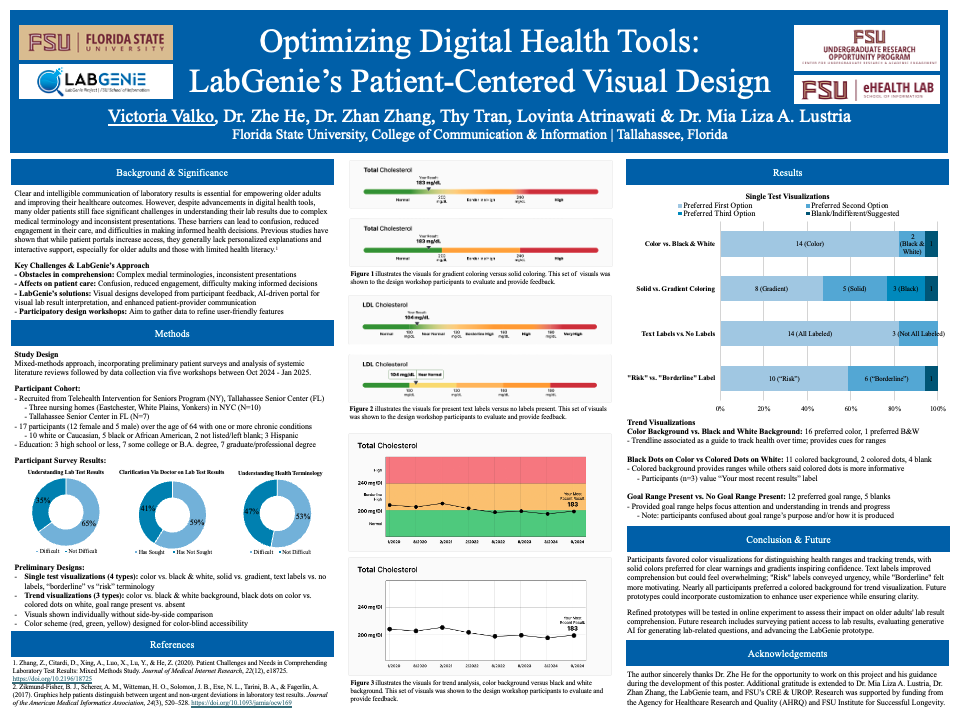Research Symposium
25th annual Undergraduate Research Symposium, April 1, 2025
Victoria Valko Poster Session 3: 1:45 pm - 2:45 pm/ Poster #256

BIO
Victoria Valko is a Public Health student at Florida State University, minoring in Information Technology. Originally from McLean, Virginia, she is interested in the intersection of healthcare, technology, and policy, with a focus on improving patient care and healthcare systems.
Set to graduate in Spring 2026, Victoria is actively involved in research and leadership at FSU. She serves as President of the Bachelors of Science in Public Health Student Association (BSPHSA), Co-Secretary of the Health Informatics Student Association (HISA), Co-Chair of the 2025 Public Health Professions Conference (PHPC), and a Data and Research Intern at Integrated Musculoskeletal Care (IMC). Additionally, she works as the Outreach Assistant for FSU’s Institute for Successful Longevity (ISL), supporting research initiatives focused on aging and longevity. In Fall 2025 and Spring 2026, she will also serve as a UROP Leader, mentoring students as they navigate the Undergraduate Research Opportunity Program.
Victoria plans to pursue a master’s degree in administration, management, or public health. In her free time, she enjoys exercising, traveling, cooking, and spending time with the people she cares about.
Optimizing Digital Health Tools: LabGenie’s Patient-Centered Visual Design
Authors: Victoria Valko, Dr. Zhe HeStudent Major: Public Health, Information Technology (Minor)
Mentor: Dr. Zhe He
Mentor's Department: Information Department Mentor's College: College of Communication & Information Co-Presenters:
Abstract
The LabGenie project seeks to improve patient comprehension of lab test results through AI-driven tools that enhance understanding and communication with healthcare providers. Effective interpretation of lab results is crucial for patient engagement, particularly among older adults who face unique barriers to accessing and understanding medical information.
This study utilized participatory design workshops to refine visual aids for lab results. Five workshops were conducted across three senior centers in New York and one in Tallahassee, Florida. Seventeen participants aged 65 and older evaluated prototype visuals, providing feedback and discussing factors influencing comprehension. Most preferred color-coded visuals (n=14), descriptive labels (n=14), and goal ranges (n=12). Some suggested larger, bold fonts for improved clarity (n=5). Preferences for color representation varied, with some favoring solid colors for immediate warnings (n=5) and others preferring gradients for flexible interpretation (n=8). The term “risk” was perceived as urgent and informative (n=10), whereas “borderline” was seen as more understandable and motivating (n=6). For trend visualizations, most participants favored black dots on a colored background (n=11) with goal ranges (n=12).
Findings suggest refining prototype visual designs to enhance comprehension and empower patients in managing their health. By improving lab result interpretation, the LabGenie project aims to support shared decision-making and improve health outcomes, particularly for older and at-risk populations.
Keywords: patient engagement, health literacy, shared decision-making


